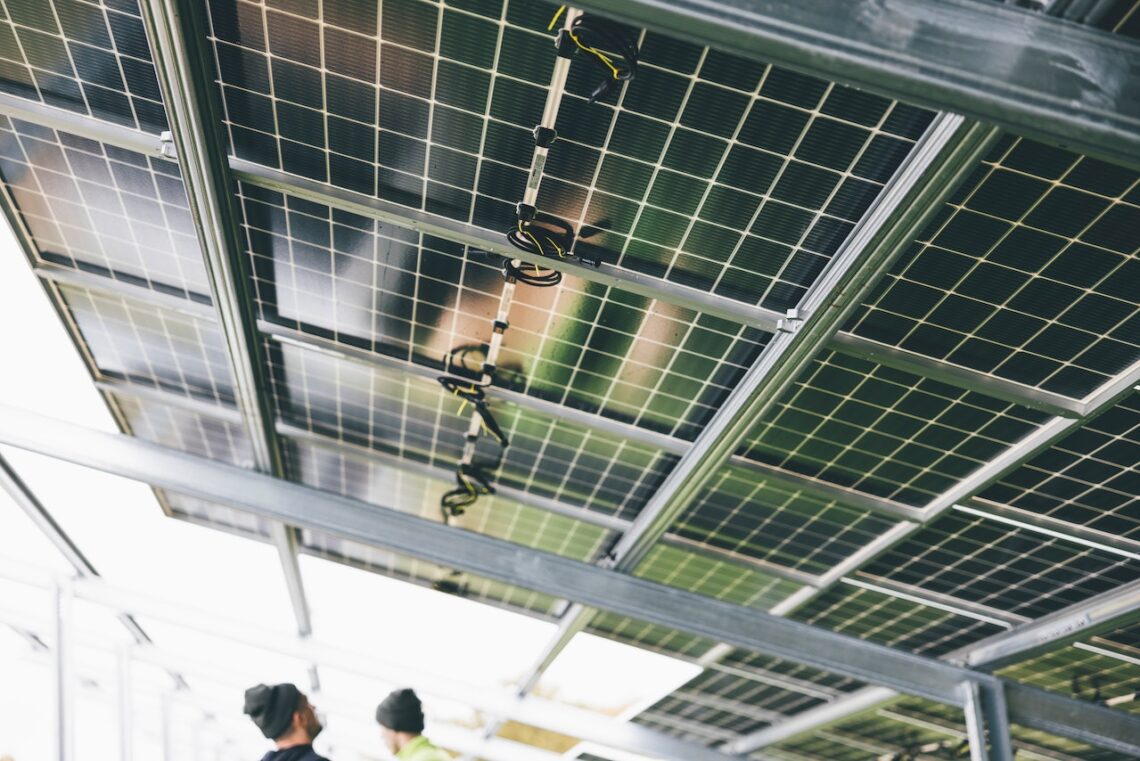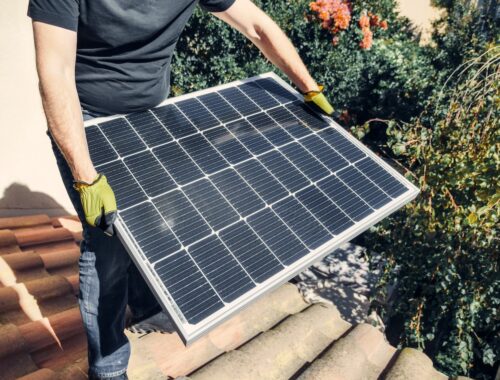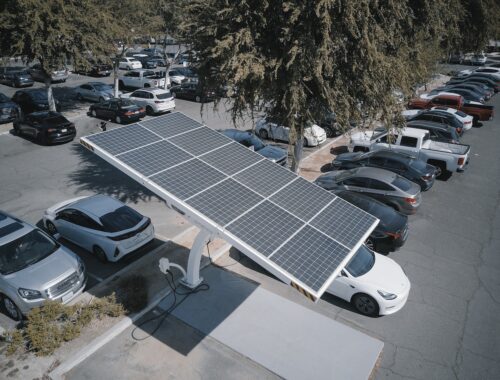
How does solar energy work?
Solar energy is a clean, renewable, and sustainable source of energy that has become increasingly important in recent years as the world faces an energy crisis and the need for clean, renewable energy sources becomes more pressing. Solar energy is generated through the use of photovoltaic (PV) panels, which convert sunlight into electricity. Understanding how solar energy works is an important step in fully appreciating the potential of this clean and sustainable source of energy.
The first step in understanding how solar energy works is to understand the basic science behind photovoltaic panels. Photovoltaic panels are made up of photovoltaic cells, which are made of silicon and other materials. When sunlight strikes the photovoltaic cells, it causes the electrons in the cells to become excited, generating a flow of electricity. This flow of electricity is captured by electrical conductors and used to generate electricity.
The efficiency of photovoltaic panels is determined by the quality and purity of the silicon used in the cells, as well as by the design of the panels. Advances in technology have led to the development of more efficient photovoltaic panels, which are capable of generating more electricity with less sunlight.
Once the electricity is generated by the photovoltaic panels, it is stored in batteries and can be used to power homes, businesses, and other facilities. Solar panels can be installed on homes and businesses, or they can be installed in large-scale installations, such as solar farms, to generate significant amounts of electricity for entire communities, regions, or even countries.
It is worth noting that the use of solar energy is not limited to the generation of electricity. Solar energy can also be used to heat water and air, through the use of solar-powered water heaters and solar-powered heating systems. This type of solar energy can help to reduce dependence on traditional energy sources, as well as reducing greenhouse gas emissions and improving air quality.
Another important aspect of solar energy is the cost. The cost of solar energy has been declining in recent years, as advances in technology have made photovoltaic panels more efficient and less expensive to produce. In addition, the cost of installing solar panels has also declined, making solar energy a more cost-effective and accessible source of energy for homes and businesses.
It is also important to note that solar energy is scalable and can be used to power small, individual homes or large-scale facilities. This makes it an ideal source of energy for communities of all sizes, and it can be adapted to meet the unique energy needs of each community.
In addition, solar energy is a reliable source of energy, as it is not subject to the same fluctuations and interruptions as traditional energy sources. Solar panels generate electricity even on cloudy days, and they can continue to generate electricity even during power outages, providing a reliable source of energy for homes and businesses.
Another advantage of solar energy is its versatility. Solar panels can be installed on rooftops, walls, or even on the ground, making it a versatile source of energy that can be used in a variety of settings. This versatility makes it an ideal source of energy for homes, businesses, and communities in both urban and rural areas.
It is worth mentioning that the use of solar energy has a number of environmental benefits. Solar energy does not produce greenhouse gas emissions, and it does not contribute to air or water pollution. In addition, the use of solar energy can help to reduce the demand for non-renewable energy sources, such as coal and oil, helping to conserve these resources for future generations.
It’s also worth mentioning that solar energy can provide economic benefits. The use of solar energy can create jobs in the installation, maintenance, and manufacturing of solar panels and related equipment. In addition, the use of solar energy can help to reduce the cost of energy for homes and businesses, providing a cost-effective source of energy that can help to reduce energy bills.
Furthermore, solar energy is a decentralized source of energy, meaning that it can be generated and used locally, reducing the need for long-distance energy transmission and reducing the risk of energy loss in transmission. This decentralization of energy generation can also help to improve energy security and reduce the dependence on energy imports.
Another important aspect of solar energy is that it can help to reduce energy poverty in developing countries. Access to electricity is a critical component of economic and social development, and the use of solar energy can help to provide access to electricity in areas where traditional energy sources may be limited or unavailable. This can help to improve access to education, healthcare, and other essential services, and it can help to reduce poverty and improve the quality of life for people in these areas.
Finally, it is worth mentioning that the use of solar energy is growing rapidly around the world. Governments and businesses are investing in solar energy as a way to reduce dependence on non-renewable energy sources, reduce greenhouse gas emissions, and improve access to electricity. As technology continues to improve and the cost of solar energy continues to decrease, it is likely that we will see even more widespread adoption of solar energy in the years to come.
In conclusion, solar energy is a clean, renewable, and sustainable source of energy that is generated through the use of photovoltaic panels. Understanding how solar energy works is an important step in fully appreciating the potential of this clean and sustainable source of energy. The cost of solar energy has been declining in recent years, making it a more cost-effective and accessible source of energy for homes and businesses. With advances in technology and increased investment, it is likely that we will see even more widespread adoption of solar energy in the years to come.

What are main uses of solar energy?
You May Also Like

How can I power my home with solar energy?
April 21, 2023
Exploring the Four Main Uses of Solar Energy
May 9, 2023
